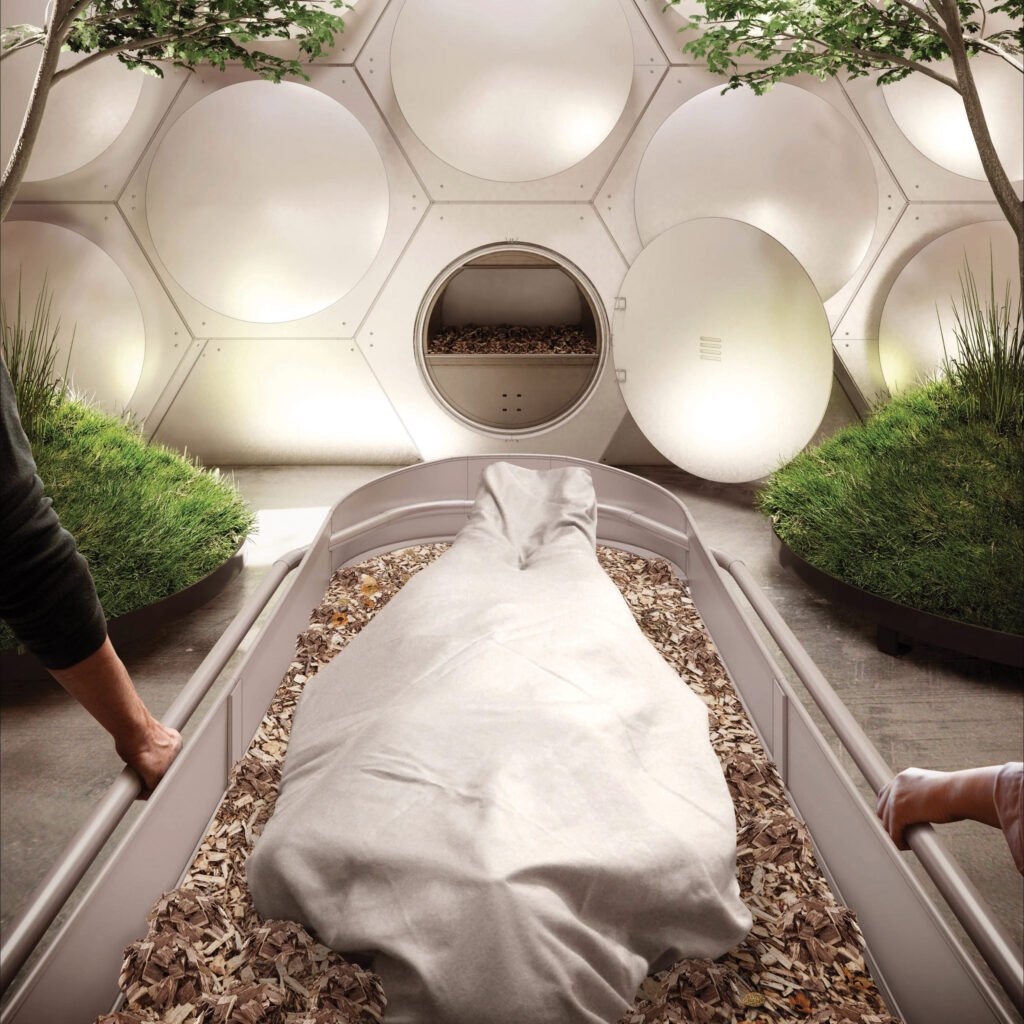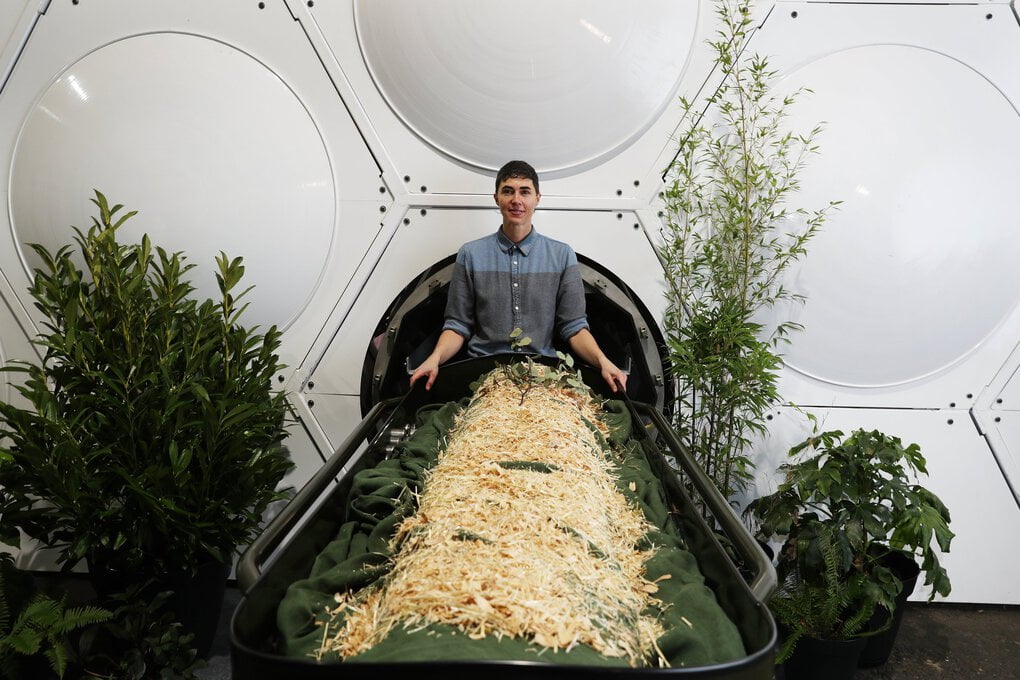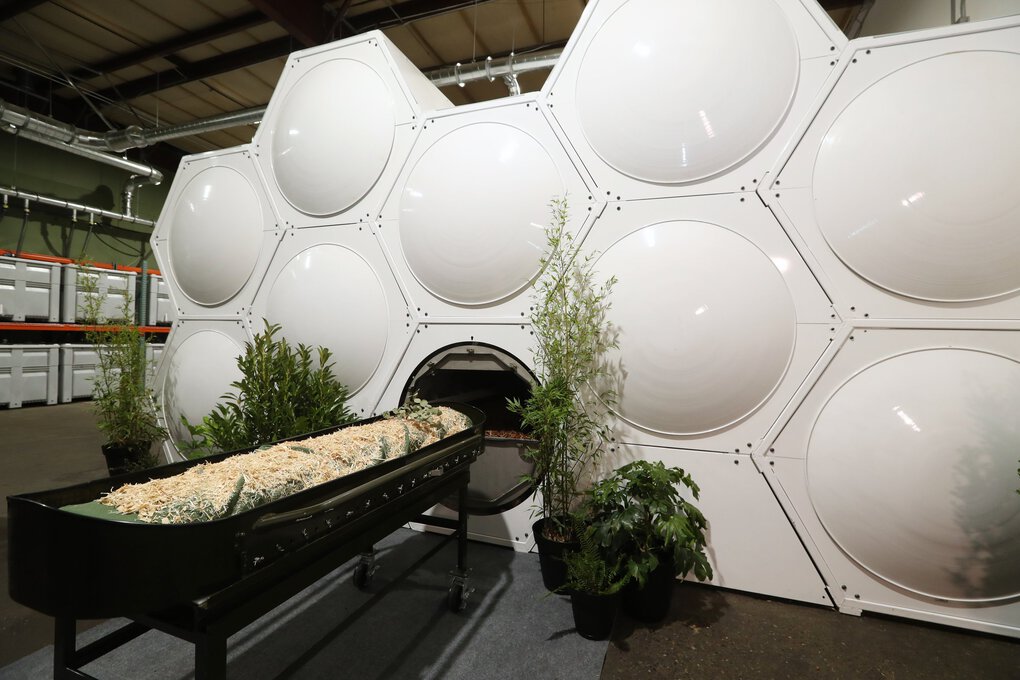The First U.S. Funeral Home That Turns Bodies Into Compost Is Now Open

Recompose, located outside of Seattle, has turned its first customers into soil after years of development.
For almost a decade, Katrina Spade has been developing a new way to deal with dead bodies.
In 2011 as a graduate student in architecture, Spade began questioning what would become of her corpse after death. Unsatisfied with the options available, she spent years refining her own solution: “natural organic reduction.”
This December, after years of feasibility studies, fundraising, and legislative efforts, Spade’s company, Recompose, started turning its first customers into compost.

Recompose’s operations, outside of Seattle, currently accommodate 10 bodies. The plan was initially for the facility to have capacity for 10 times more, but COVID-19 put a temporary damper on those ambitions. At the same time, the challenges presented by the pandemic have only reinforced the staff’s sense of mission.
“Ecological deathcare is more important than ever,” says Anna Swenson, customer and communications manager for Recompose. “We felt the responsibility of making this available.”
Recompose’s process centers around the “vessels,” a stack of gleaming white hexagonal steel tubes, currently housed in a nondescript warehouse in Kent, Washington. When someone dies, staff place the body, as well as wood chips, straw, and alfalfa, into the container, which provides the optimal amount of heat, water, carbon, nitrogen, and oxygen for decomposition. Over the next 30 days, naturally-occurring microbes—and a few turnings with a tool similar to a dough hook—break the body down. The resulting soil (about 1 cubic yard worth) dries for two weeks to a month before it’s distributed to families or donated to an ecological restoration project.
For many prospective customers, the appeal of Recompose is environmental. Every body that is composted, instead of buried conventionally or cremated, saves 1 metric ton of carbon dioxide emissions, according to the company.
Cremation might seem like a mess and a waste; the nutritive potential of the body is literally set on fire. By contrast, said Philip Olson, a technology ethicist and professor at Virginia Tech who studies death, Recompose’s method seems clean and useful.
Putting a body through this process “makes it compost, which is this nutrient-giving, life-sustaining thing,” Olson said. That’s appealing in an era defined both by accelerating climate change and a culture defined by productivity. Natural decomposition feels like a way to short-circuit the fear that “we are the virus”, while staying optimized, even in death.
This new way of dealing with death may also say something about the way we live, Olson said. The photos of Recompose vessels remind him of vertical farming. Both feel like “sort of an acknowledgement that urban life is the main form of life.” We want to build up, not out; to live compactly and die with the smallest possible footprint.
Recompose costs $5,500 per person, but transportation may cost extra. “We can, it seems, pretty easily fill 10 vessels a month and we don’t want to turn people away,” Swenson said. The company plans to move to a space that accommodates 40 decomposition pods by the end of the year.
It also wants to continue to expand human composting’s potential to new frontiers. Washington passed the law legalizing natural organic reduction in 2019. This year, legislatures in California, Oregon, and Colorado are each considering similar bills. While it’s early in the session, Swenson says Recompose has community support in each state.
As Spade’s idea catches hold, other companies want in. Recompose already has two competitors, Herland Forest, which has one vessel, and Return Home, which will open a large facility in April, in Washington, according to The Seattle Times. Swenson said that’s just fine by them.
“If we’re trying to make an impact on climate change, which we are, it’s going to take more than just Recompose,” she said.



